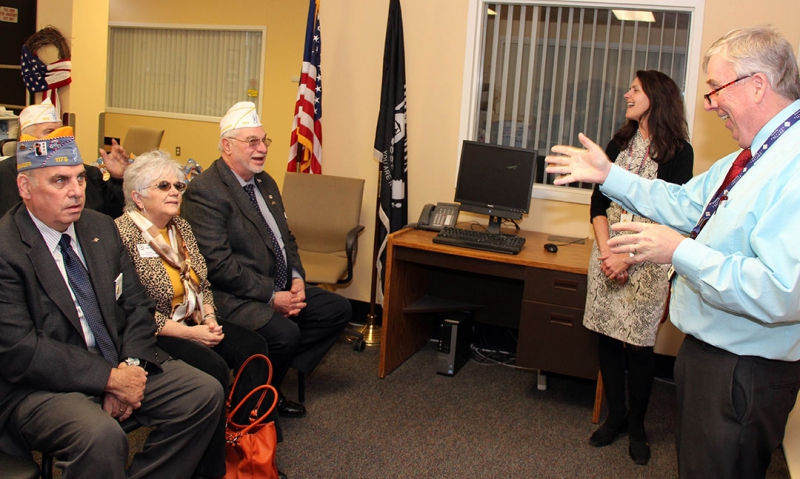
Department of New York spearheads own program to help address VA concerns.
Editor’s note: This is a weekly series of Department Spotlight stories featuring unique programs and initiatives of departments throughout The American Legion. Department adjutants are invited to recommend subjects for their departments by emailing magazine@legion.org.
When funding for The American Legion’s System Worth Saving program began to dwindle, Department of New York members Mike Suter and Pat Rourk — both of whom served on the national program — took the initiative to ensure their state’s program would endure.
New York’s program has been so successful that the national program has used it as a template as the national program has regrown.
The department had to pass a resolution in 2015 to get approval for the state-level program, which Suter said was modeled off the national program but designed to reflect New York’s situation.
“We talked about it almost a year before we put the resolution together,” Suter said, noting that they worked with Adjutant Jim Casey to make sure there would be no funding issues.
“We put together a training program and we selected a lot of our American Legion-accredited representatives to be part of our task force,” said Suter, chairman of New York’s veteran services committee. “Of course, they had not been through anything like this so we provided a three-day school to basically train them on areas they need to pay attention to, the questions they need to ask, and the answers they should expect.”
Suter said that the national program sent two representatives to New York’s training program, who gave their blessing to the state program when they were done.
“We have had super support from national,” Suter said. “Very favorable support from the national (Veterans Affairs & Rehabiliation) commission, the Washington office has just been super.”
Suter said the New York program is able to look at three to four hospitals and five to seven community-based outpatient clinics a year. The state is divided into three regions for the SWS program, ensuring that travel is easy on the task force members.
Suter says the SWS program is “critical” for veterans.
“We still find delays in getting appointments for our veterans,” he said. “There are lots of issues with specialty-type care; some have it, some don’t.”
Still, it’s a “team effort” between the Legion and the VA, Suter said.
“We’re here to help the VA, not just put them on report. They’ve been supportive and open,” he said.
“I think we have a good program; it’s something we need to do.”
Suter said it’s important for the program to observe and adapt to changes in the VA, and with veterans’ health issues. New York’s SWS has set up a committee to look at suicide prevention measures among veterans, for example.
“If we see a problem, we want to get it corrected,” he said.
- System Worth Saving

